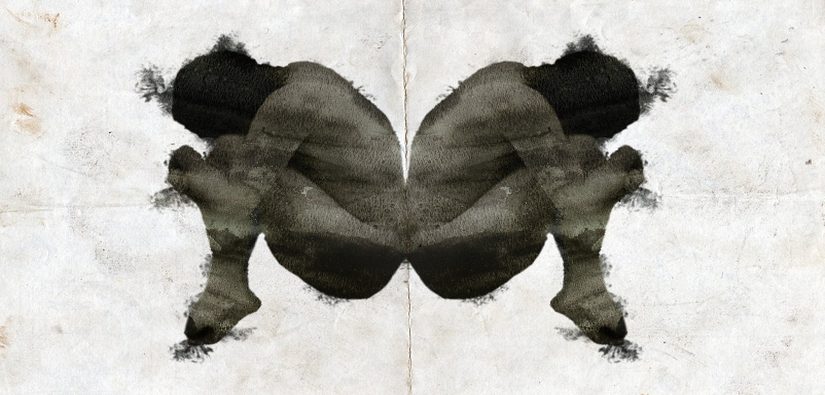The current discourse about mental health in India appears to be divorced far from the reality in terms of recognising the different therapeutic modalities and services provided by various mental health professionals.
Case-in-point, the Mental Health Care Bill, 2016, which was recently passed in the Rajya Sabha (or the Council of States, which is the upper house of the Parliament of India).
On the outset, the Bill seems to be progressive in many instances in bringing social reforms, but it also suffers from some glaring issues.
First, the much-needed decriminalisation of attempted suicide, second, a broader definition of mental-illness and third, addressing the rights of the ‘patient’ in terms of granting agency and dignified treatment.
But, at the same time, it also exhibits resistance in vision and imagination regarding certain pertinent issues.
“the human emotional-landscape can be better understood from a ‘social’ dimension, placing the human-subject at the centre of the social milieu…”
Regrettably, the drafters of the bill have adopted a uni-dimensional philosophy of mind, the biomedical model, about human suffering and thereby reducing the human subject merely to a ‘clinical’ object.
This kind of reduction of the human subject evokes Dilthey’s age-old debate between ‘the natural sciences’ and ‘the social sciences’ (aka ‘the humanities’).
The natural phenomena or forces can be ‘explained’ in terms of causal laws, whereas, given the complexity of the subjective inner ‘psychic’ phenomena or experience of a human-being, it can only be ‘understood’ in a relational model and cannot be explained in terms of causal laws.
Whereas, the ontology of human emotional-landscape can be better understood from a ‘social’ dimension, placing the human-subject at the centre of the social milieu; and from an object-relational model, wherein, we come to an epistemic understanding of a person through inter-personal and intra-personal dynamics.
The dyadic relationship is a space between the therapist and the client, which is governed less by the ‘clinical explanation’ but more by an ‘empathetic understanding’ of ‘the other’ through his/her subjective reality; consequently, the healing happens within this therapeutic condition.
Also, on the philosophical plane, there is this mystical mind-body problem, the hard problem of consciousness, that ‘Science’ is yet to demystify.
Until, we are able to explain and understand the metaphysical aspects of the mind, there will be no clear delineation between the psycho-genesis or patho-genesis of mental illnesses, it would be advisable to embrace a holistic muti-dimensional healing model.
“embracing an inclusive approach and recognising the rights and services of psychotherapists from different approaches thereby granting the persons with mental illness a choice of treatment…”
Speaking about the Bill, legitimising ‘psychiatrist’ and ‘clinical psychologists’ is laudable but it implies non-recognition of all other mental health professionals such as ‘counselling psychologist’, ‘family therapists’, ‘school psychologist’ etc. in the field of rehabilitation and mental health.
In praxis, history instructs us, non-recognition will promote illegitimate practices and leave little choice for the practitioners but to exercise unlawful means to practice their vocation, which further calls for recognising and standardising these vocations.
Currently, there is a lacuna in the mental health services, with only a couple of thousands of trained professionals practising in the field, and the impending fear is that this piece of legislature is only going to widen the gap.
Further, there are ramifications of enforcing the Bill; apart from many ‘psychologist’ being disadvantaged and disenfranchised, ‘the patient’, is alienated from the services of these ‘mental health professionals’, thereby limiting their choice of treatment.
In fact, by bringing the services under the purview of judicature, any third party can now file a complaint against the person who is seeking therapy or any such services and against the person who is posing as a ‘psychologist’ or a service provider, by any title, without appropriate credentials and license.
Example: If person A is seeking treatment from person B, person Z can file a complaint against both persons A and B if person B does not hold appropriate credentials and license to practice as a mental health professional aka ‘clinical psychologist’.
In other words, no person can legally seek therapy or treatment from any person or professional other than a ‘psychiatrists’ or a ‘clinical psychologist’.
A clinical psychologist is a professional who has undergone a rigorous supervised training in understanding the phenomenology of mental illnesses, diagnosis, assessment and management of the same and who is trained and supervised in various psychotherapy approaches, from an institute recognised by Rehabilitation Council of India (RCI) and holding a RCI license to practice.
Which, in a way, is a positive direction towards ascertaining professional care to persons with mental illness, but it also has its own limitations.
Example, apart from limiting the professional workforce, it enables the state to dictate what kind of treatment or therapy can be sought by a person and from whom, hence limiting the choice to only the medical model.
“the bill should have embraced an inclusive approach…”
Mental Health is a State subject, and given the complex subject and the challenges faced by the state – the rampant practice by untrained persons posing as various mental health professionals.
On one hand, this bill posits a positive spirit to regularise, legalise and recognise well trained professionals to provide services to persons with mental illness, but at the same time recognising only the biomedical model, which is likely to further the collective-mental-suffering of the country.
On the other hand, the bill should have embraced an inclusive approach in terms of recognising trained professionals from different approaches by providing opportunities to qualify as a mental health professional under different titles, by providing standardised training and delineating their roles, responsibilities and limitations accordingly.
Unfortunately, these changes are unlikely to be seen in the very near future, unless there is a strong social will along with rigorous judicial activism, as for now, the current Mental Health Care Bill is here to stay.
In summary, apart from the many positive inclusions in the current Mental Health Care Bill, a few modifications such as further broadening the definition of mental illness, embracing an inclusive approach and recognising the rights and services of psychotherapists from different approaches thereby granting the persons with mental illness a choice of treatment, and lastly shifting from the biomedical model to a holistic bio-psycho-social model of mental illness, will further improve the mental health services in the country and help bring about a much needed social reform in the long neglected area of mental health.
Lastly, mental health practitioners from various approaches should seek proper training, certification, recognition and licensing in relevant mental health fields and further the momentum in providing quality professional care to persons with mental illness.
Will the current bill be progressive or regressive in terms of bringing social reforms?

